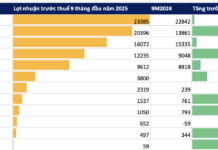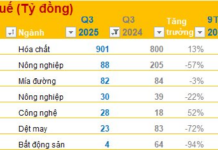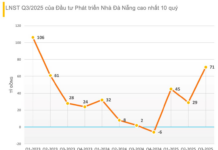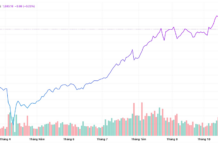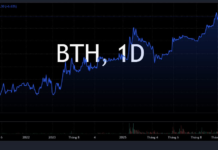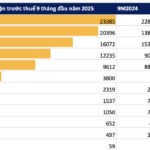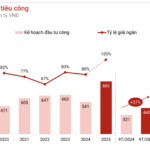August 2024 sees a series of new policies coming into effect, significantly impacting millions of people across the country. These new policies, effective from August 2024, include laws related to real estate, housing, taxation, and civil servants.
3 LAND AND HOUSING LAWS OFFICIALLY TAKING EFFECT FROM 1/8/2024
The Laws on Land, Housing, and Real Estate Business, including the Law on Land No. 31/2024/QH15, the Law on Housing No. 27/2023/QH15, and the Law on Real Estate Business No. 29/2023/QH15, will all come into force on August 1st, 2024.
On June 29th, 2024, the National Assembly passed the Law amending and supplementing a number of articles of these laws. The Law comprises 5 articles and will take effect from August 1st, 2024. It stipulates amendments and supplements to the Law on Land No. 31/2024/QH15 as follows: “Resolution No. 132/2020/QH14 dated November 17th, 2020, of the National Assembly on piloting some policies to resolve difficulties and obstacles in the management and use of defense land and security land, combined with labor production, and economic construction will be abolished from January 1st, 2025.”
Amendments and supplements are also made to Clause 1, Article 252: “This Law takes effect from August 1st, 2024, except for cases prescribed in Clause 2 and Clause 3 of this Article.”
In addition, Clause 10, Article 255, has been amended and supplemented: “Investment projects that fall under the case of land allocation or land lease without auction of land use rights as prescribed in the Land Law No. 45/2013/QH13, relevant laws, and in line with the master plan and land use plan, but have not been allocated land or leased land, shall continue to carry out the next steps in the procedure for land allocation or land lease to investors or project owners in accordance with the provisions of this Law if they meet one of the following cases:
Projects that have selected investors or project owners in accordance with the provisions of investment laws, housing laws, and bidding laws from July 1st, 2014, to before August 1st, 2024;
Projects for which investors have submitted valid dossiers to carry out the procedure for selecting investors or project owners before August 1st, 2024, and have selected investors or project owners before January 1st, 2025.
The selection of investors or project owners for projects prescribed at this point must comply with the provisions of investment laws, housing laws, and bidding laws in effect at the time of dossier submission.”

At the same time, the Law also amends and supplements Clause 1, Article 197 of the Housing Law No. 27/2023/QH15; amends and supplements Clause 1, Article 82 of the Real Estate Business Law No. 29/2023/QH15; and amends and supplements Clause 2, Article 209 of the Law on Credit Institutions No. 32/2024/QH15, which will take effect from August 1st, 2024.
NEW PROVISIONS ON LAND PRICES AND COMPENSATION, SUPPORT, AND RESETTLEMENT
Several provisions on land prices will take effect: Decree 71/2024/ND-CP, issued by the Government, stipulates new regulations on land prices, effective from August 1st, 2024. Specifically, instead of stipulating the factors influencing land prices according to each method of land price determination, Article 8 of Decree 71/2014/ND-CP stipulates the factors influencing land prices for each type of land as follows:
– For non-agricultural land: The location and site of the land lot or land area; transportation conditions in terms of road width, road surface structure, and adjacency to one or more roads; water and electricity supply conditions; land area, size, and shape; land use duration; and current environmental and security conditions…
– For agricultural land: Crop and livestock productivity; the location and characteristics of the land lot or land area; land use duration, excluding the case of land allocation to households and individuals according to the limit in the land use right allowance; and other factors…
New regulations on compensation, support, and resettlement when the State recovers land: The Government has issued Decree No. 88/2024/ND-CP, dated July 13th, 2024, on compensation, support, and resettlement when the State recovers land. This decree takes effect from August 1st, 2024.
Decree No. 88/2024/ND-CP stipulates compensation in the form of land with a different purpose from the type of land recovered or in the form of a house when the State recovers land as prescribed in Clause 1, Article 96, Clause 1, Article 98, and Clause 1, Article 99 of the Land Law.
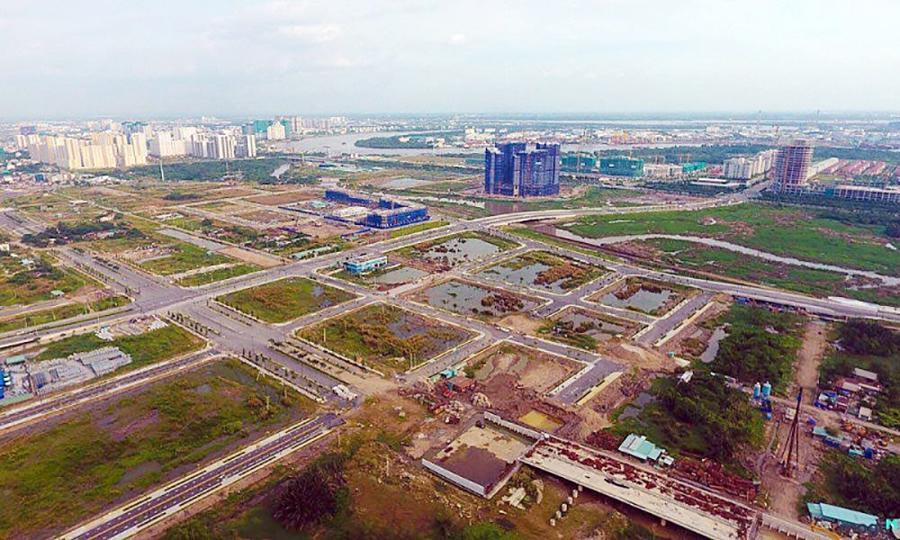
According to the regulations, the land price for calculating the land use levy when compensating with land of a different purpose from the type of land recovered for households and individuals, overseas Vietnamese with Vietnamese nationality who are using residential land and owning houses attached to land use rights in Vietnam, shall be the land price determined by the land price frame at the time of approval of the compensation, support, and resettlement plan.
In case of compensation in the form of land lease with a one-time land rent payment for the entire lease period, the land price for calculating the land rent shall be the specific land price decided by the People’s Committee of the same level at the time of approval of the compensation, support, and resettlement plan.
The land price for calculating the land use levy or land rent when compensating with land of a different purpose from the type of land recovered for economic organizations with recovered residential land shall be the specific land price decided by the People’s Committee of the same level at the time of approval of the compensation, support, and resettlement plan.
In cases where the compensation for the recovered land is in the form of land with a different purpose or in the form of a house, and there is a difference in value between the compensation, support, and land use levy or rent to be paid when allocated land, leased land, or purchased a house, the following regulations shall apply:
If the compensation and support amount for the land is higher than the land use levy or rent to be paid when allocated land, leased land, or purchased a house of a different purpose, the land owner shall be entitled to receive the difference;
If the compensation and support amount for the land is lower than the land use levy or rent to be paid when allocated land, leased land, or purchased a house of a different purpose, the land owner shall have to pay the difference.
The People’s Committee at the provincial level shall, based on the land fund, housing fund, and actual situation in the locality, stipulate the conversion rate and conditions for compensation in the form of land with a different purpose or in the form of a house for the land owner as prescribed.
REAL ESTATE APPRAISAL STANDARDS
The Ministry of Finance has issued Circular No. 42/2024/TT-BTC, dated June 20th, 2024, promulgating the Vietnamese Valuation Standard on Real Estate Appraisal. This circular takes effect from August 5th, 2024.
According to the circular, the Vietnamese Valuation Standard regulates and guides real estate appraisal when conducting appraisals in accordance with the provisions of the Law on Price. This standard does not apply to land price determination according to the provisions of the Land Law.
The approaches applied in real estate appraisal include the market approach, the cost approach, and the income approach as prescribed in the Vietnamese Valuation Standard or a combination of these approaches. The surplus method is a valuation method built on the basis of combining the market approach, the cost approach, and the income approach.
Depending on the characteristics of the real estate to be appraised, the purpose of the appraisal, the timing of the appraisal, the basis of the appraised value, and the information and data on the real estate to be appraised that can be collected, the appropriate approach and method of appraisal shall be selected.
REVISION OF REGULATIONS ON INDIRECT INVESTMENT ABROAD; LENDING LIMITS FOR PEOPLE’S CREDIT FUNDS
Revision of regulations on indirect investment abroad: On June 28th, 2024, the State Bank of Vietnam issued Circular No. 23/2024/TT-NHNN amending and supplementing a number of articles of Circular No. 10/2016/TT-NHNN dated June 29th, 2016, guiding the implementation of a number of articles of Decree No. 135/2015/ND-CP dated December 31st, 2015, of the Government on indirect investment abroad. This circular takes effect from August 12th, 2024.
Circular 23/2024/TT-NHNN amends and supplements Article 8 on the principles of implementing the overseas stock incentive program. Accordingly, the implementation of the overseas stock incentive program must ensure the following principles:
The overseas stock incentive program with participants who are Vietnamese citizens shall be implemented through the organization executing the stock incentive program.
Foreign currency proceeds from dividends and other legitimate incomes related to the overseas stock incentive program must be transferred to Vietnamese citizens through the program execution account prescribed in Article 12 of this Circular.
Compliance with foreign exchange management regulations, tax obligations, and other relevant provisions of Vietnamese law.
Compared to the current regulations, Circular 23/2024/TT-NHNN has removed the requirement for confirmation of registration by the State Bank before implementing the overseas stock incentive program.
In addition, the circular also amends and supplements Article 9 on the forms of incentives: Direct incentives in the form of stocks; Other forms of stock incentives abroad that do not generate outward remittances.
The circular adds other forms of stock incentives abroad that do not generate outward remittances. The current regulations only mention direct incentives in the form of stocks and incentives in the form of stock options with preferential conditions.
Revision of regulations on lending limits of people’s credit funds: The State Bank of Vietnam has issued Circular No. 13/2024/TT-NHNN dated June 28th, 2024, amending and supplementing a number of articles of Circular No. 32/2015/TT-NHNN stipulating the limits and ratios to ensure safety in the operations of people’s credit funds. This circular takes effect from August 12th, 2024.
Circular 13/2024/TT-NHNN amends and supplements Article 8 on the lending restrictions of people’s credit funds. Specifically, people’s credit funds shall base themselves on their own equity, determined at the end of the nearest working day, to determine:
Limitations on lending to organizations and individuals as prescribed in Article 135 of the Law on Credit Institutions 2024;
Lending limits to a customer, a customer and related parties of the customer as prescribed in Article 136 of the Law on Credit Institutions 2024.
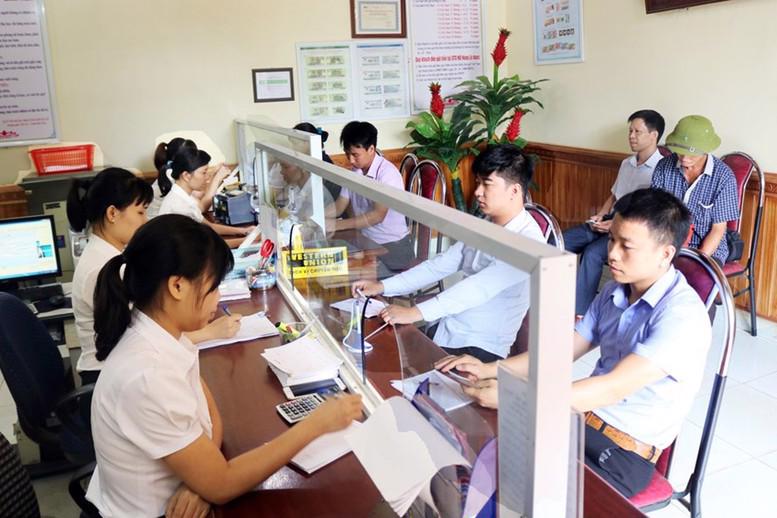
The Board of Directors shall decide on loans to the appraiser and loan approver at the people’s credit fund with a value of VND 100 million or more or a lower value according to the internal regulations of the people’s credit fund.
The remaining cases shall be implemented according to the internal regulations of the people’s credit fund.
For loans to the subjects specified in point a above, the people’s credit fund must:
Report to the State Bank branch of the province or centrally-run city according to the regulations of the State Bank of Vietnam;
Publicize before the Members’ Congress for loans arising up to the time of taking data to hold the Members’ Congress.
The total outstanding loans to a member who is a legal entity must not exceed the total capital contribution and deposit balance of that legal entity at the people’s credit fund at any time.
The total outstanding loans to customers who are legal entities or individuals who are not members must not exceed the balance of the deposit contract or savings book.
The limits prescribed at point b above do not apply to:
Loans from entrusted capital sources of organizations and individuals, where the people’s credit fund does not bear the risk;
Loans fully secured by deposits at the people’s credit fund itself.
PROVISIONS ON PURCHASING AND SELLING CORPORATE BONDS; NETWORK OPERATIONS OF COMMERCIAL BANKS
New provisions on the purchase and sale of corporate bonds by credit institutions: The State Bank of Vietnam has issued Circular No. 11/2024/TT-NHNN dated June 28th, 2024, amending and supplementing a number of articles of Circular No. 16/2021/TT-NHNN stipulating the purchase and sale of corporate bonds by credit institutions and branches of foreign banks. This circular takes effect from August 12th, 2024.
Circular 11/2024/TT-NHNN supplements Clause 14 into Article 4 on the principles of purchasing corporate bonds: The bond-issuing enterprise must send to the credit institution information about related parties as prescribed in the Law on Credit Institutions before the time of the credit institution’s purchase of corporate bonds. Related parties of the bond-issuing enterprise are organizations and individuals that have relations with the bond-issuing enterprise as prescribed in Clause 24, Article 4 of the Law on Credit Institutions.
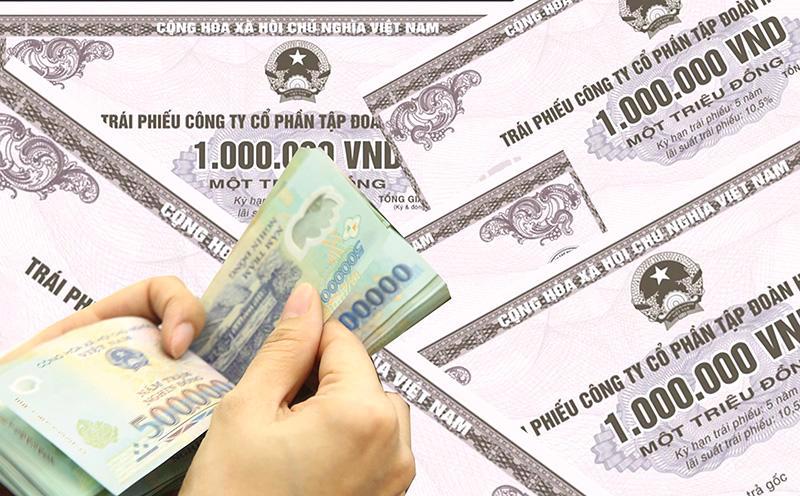
Information about related parties who are individuals includes: Full name; Individual identification number; Nationality, passport number, date of issue, and place of issue for foreigners; Relationship with the bond-issuing enterprise.
Information about related parties who are organizations includes: Name, enterprise code, head office address, business registration number or equivalent legal document; Legal representative, relationship with the bond-issuing enterprise.
In addition, the circular supplements Clause 15 into Article 4: Credit institutions must use non-cash payment services when making payments in the purchase and sale of corporate bonds in accordance with the law on non-cash payments.
The circular also amends and supplements Clause 1, Article 8 on the limit for purchasing corporate bonds.
Accordingly, the total outstanding amount of corporate bond purchases (including bonds issued by the enterprise and related parties of that enterprise) is counted into the total credit limit for a customer, a customer and related parties as prescribed in the Law on Credit Institutions and the regulations of the State Bank of Vietnam on the limits and ratios to ensure safety in the operations of credit institutions.
Regulations on the network operations of commercial banks: The State Bank of Vietnam has issued Circular No. 32/2024/TT-NHNN dated June 30th, 2024, regulating the network operations of commercial banks. This circular takes effect from August 15th, 2024.
This circular regulates the network operations of commercial banks, including the establishment, inauguration, name change, address change, cessation of operations, dissolution of branches, transaction offices, representative offices, and non-business units






